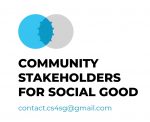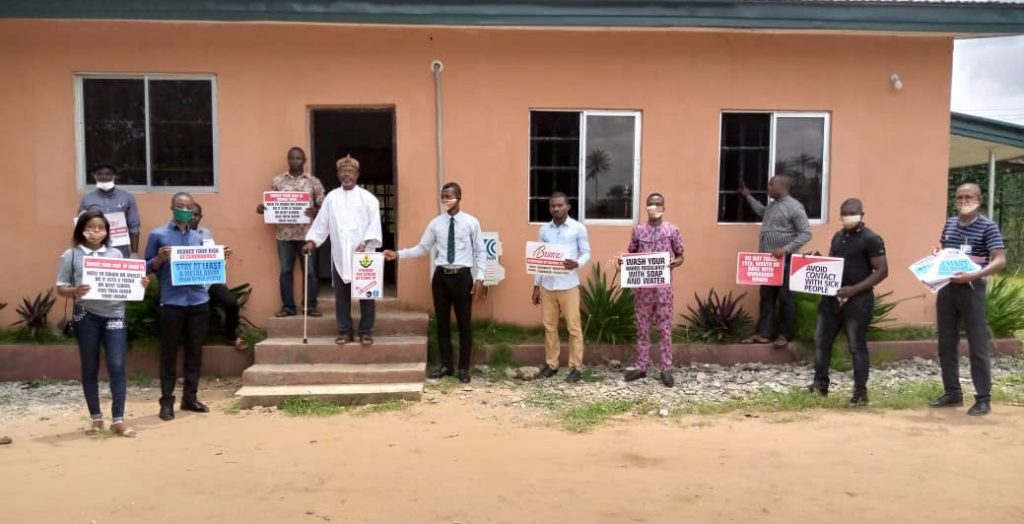Onna local government area is situated within Akwa Ibom state, South-south geopolitical zone of Nigeria. The LGA is made up of several towns and villages which include Oniong, Nnung Ndem, Awa, Afaha, Ikot Idem Udo, Iquita, Ikot Ndua Iman, Ikot Nkan, and Ndon Eyo. The current estimated population of Onna LGA is put at 108,713 inhabitants with the area mostly populated by members of the Onna ethnic group. The Onna language is commonly spoken in the area. It is the Local Government of the state Governor His Excellency Decon Udom, Gabriel Emmanuel.

The sensitization session on Coronavirus Disease – took place on 1st May 2020. The team was received by the Paramount Ruler of Onna Local Government His Royal Majesty Edidem Raymond Timothy Inyang in his palace at Awa Ndon. In the company of the youth leader Mr. Aniekan Amos, the team visited the Awa Ndon community, Ndon Eyo village, its markets, street junctions, and pubs. The sensitization drive aims to equip the communities with accurate information on the disease and prevent the spread of misinformation and rumor-mongering.
To avoid or prevent the same vulnerable group of people from being affected by the next crisis – be it a new outbreak, unexpected increase in commodity prices, or a poor harvest due to unfavorable weather events or pest infestation – the resilience and the capacity of rural people and rural communities to cope with shocks needs to be strengthened. It is critical to invest in rural areas and in rural people: building roads that reduce travel time and costs; developing irrigation systems that reduce the reliance on increasingly variable rainfall; improving access to clean water and sanitation to reduce waterborne diseases; strengthening the capacity of people to save, diversify their job opportunities, access information, etc. These are critical elements for strengthening rural communities’ capacity to cope with shocks and other unforeseen events.
130 families received hand sanitizers and 70 received antiseptic soaps to ensure the washing hands’ method was consistent.





